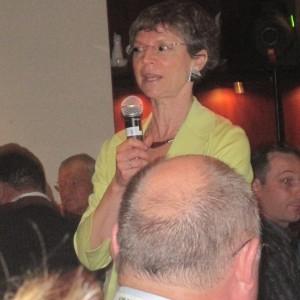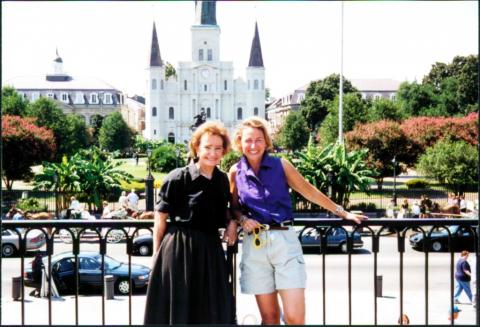How do we create playspace in very serious, high-pressure, high-stakes environments? I have written about some notable examples of playspace in banking describing the high-engagement experience that Umpqua Bank co-creates each day in From Workplace to Playspace. But what about other high-stakes environments? What about in health care?
How do we make room for engagement, fresh ideas, and open communication when the stakes are literally life and death and there are never enough hours in the day?

Recently, an old friend from high school contacted me to let me know that he was in town for a medical conference. Before reaching out, my friend Dr. John Lanaghan, had poked around my website and without being asked, offered a beautiful answer to this question via email:
“I got to watch one of your recent interviews. Interesting. But I thought that wouldn’t work in a medical workplace–no time for play. Then I kept reflecting on it and realized (long story) how I noticed that it did. I had been at one office for 5 yrs and made an effort to enjoy my time with my co-workers by chatting, celebrating birthdays, kid activities, and playing when possible. Then 5 months ago I started splitting my time between two sites. Suddenly my old site was a bummer and the new location was a pleasure. After your video I realized that I had stopped doing the fun things with the old group, while the new job involved hospital rounds where there was lots of walking and talking and joking. Now I have made an effort to make it to lunch at the same time as my coworkers at the old place and some of the enjoyment of the job is returning.”
When we met for dinner the next night, John shared more about his work. He has spent much of his career in family medicine at the V.A. Medical Center in Iowa City, and had recently begun splitting his time providing palliative care, also in the V.A. system. He acknowledged the challenge of negotiating around large egos and the medical system itself. These were not insurmountable, however, as his own experience and efforts attest. John’s reflections show a deep and intuitive understanding of the ways we can create the space for the play of new ideas and connections in our everyday conversations and interactions. Playspace is not always (or even often) about our traditional conception of play—it is about the space that enables us to engage as whole human beings.
Thank you, John Lanaghan, M.D., for sharing your reflections and to all who co-create playspace doing extra-ordinary work in often challenging circumstances each day!


